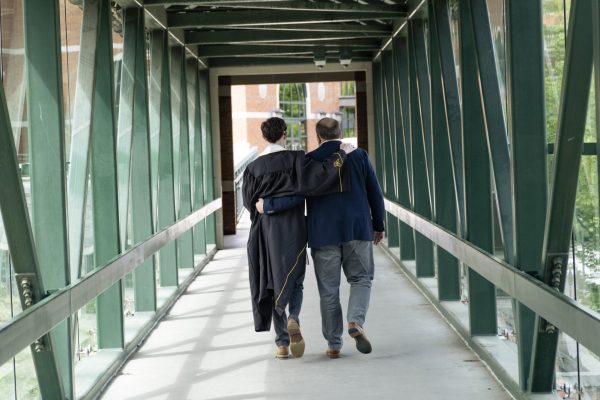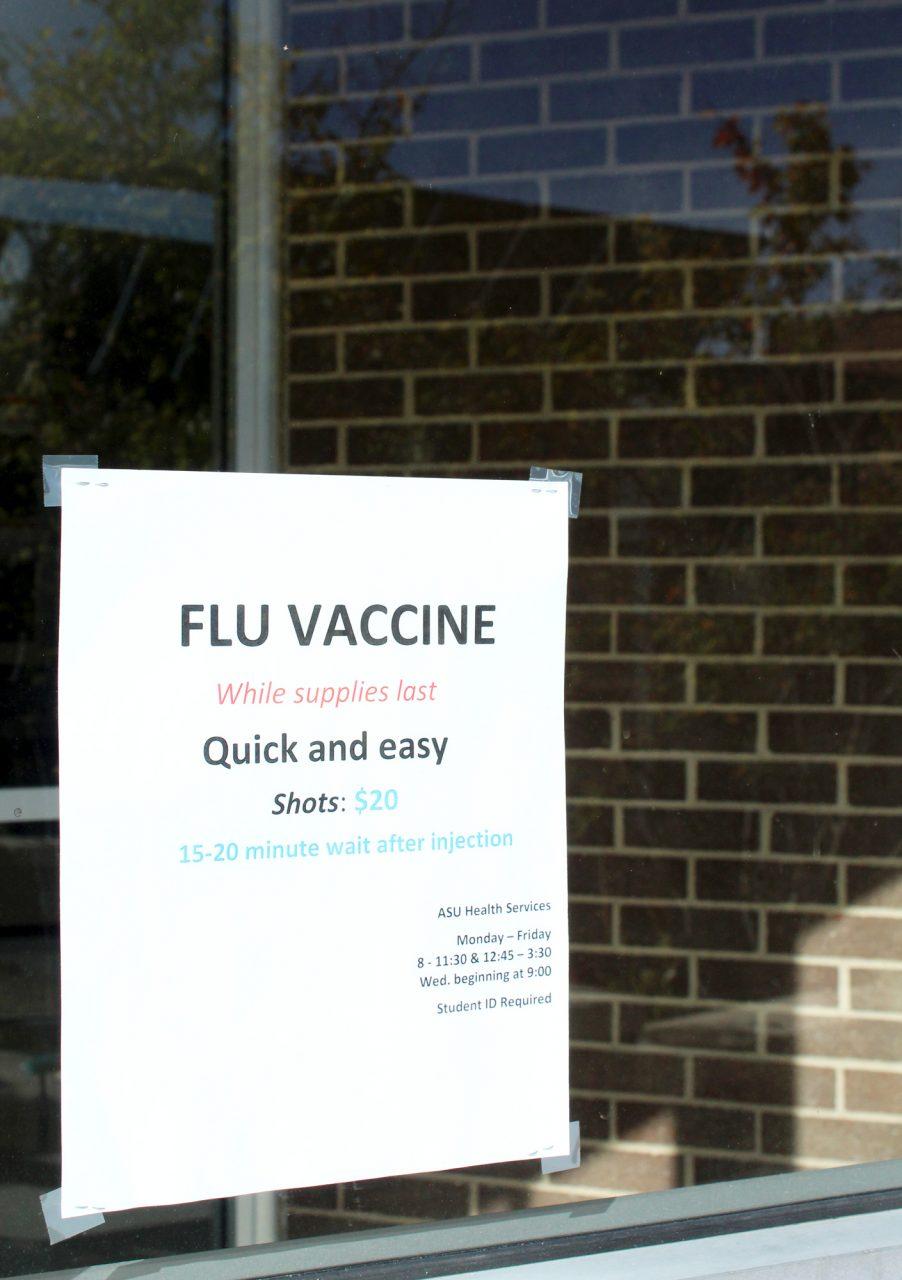As the weather gets colder and the leaves turn brown, the start of flu season ushers in a busy time of year for student health services.
The first confirmed case of the flu occurred the week of Sept. 17; therefore, the immunization specialists at health services want to remind students to remain vigilant and safe. The flu is spread easily, through coughing, sneezing or close contact. Symptoms of the flu include a fever and chills, a sore throat, muscle aches, fatigue, cough, headaches and a runny or stuffy nose.
“There’s always a possibility of the flu spreading campus-wide with 18,000 students, and professors with attendance policies,” Jill Venable, a registered nurse with student health services, said. “If you go to class, sit on the front row. You’ll only be coughing on one person. If you have a fever above 100, don’t go to class.”
Anyone can catch the flu, but the danger increases with certain health conditions. The Center for Disease Control and Prevention said that a person is at a higher risk for serious flu complications if they have chronic health conditions like asthma, diabetes or heart and lung disease. Young children, pregnant women and people 65 years and older are also at higher risk for complications.
“If you’re at risk for higher complications, get vaccinated,” Venable said. “Encourage family, friends and students to get vaccinated. Get your rest. Eat right. Keep your hands off your face and wash your hands.”
If hand washing is not an option, the staff at student health services recommend hand sanitizer.
“It’s a good solution if a bathroom isn’t available,” Connie Trivette said, a registered nurse who works with student health services.
However, hand sanitizer is not the first line of defense against the flu when the vaccine is available.
“It’s a smart thing to do for yourself,” Trivette said. “It’s a smart thing to do for your roommate, for your girlfriend, for your friends, for the greater ASU community. You can spread it to others even if you don’t get sick yourself.”
Every year in the United States, thousands of people die from the flu, with many more hospitalized.
“When you have this many people living together, the flu is going to be out there,” Venable said. “Students typically don’t get enough rest. A lot of students don’t eat as well as they do at home, and they don’t get proper exercise. All of this can raise a person’s risk of getting the flu.”
The CDC recommends a flu vaccine every flu season to protect yourself from infection.
“The vaccines kept in health services are inactivated flu vaccines,” Trivette said. “After vaccination you can feel flu-like symptoms, but you will not have the flu. The flu vaccine cannot protect you from previous exposure to the virus, so if you were infected two days before you were vaccinated, you will more than likely come down with the flu.”
Students can now go to the clinic on campus to receive the flu vaccine, but some may choose not to do so. Sophomore political science major Virginia Rae Currie said that she is hesitant to go to health services now that she knows flu season has started.
“I am particularly prone to getting sick in the winter,” Currie said. “If I do get vaccinated, it would be at my home doctor just because I feel more comfortable at home.”
Student health services wants students to know that there are other options to get vaccinated this flu season. On campus flu clinics will be held through October for students who are not comfortable coming into health services.
“Students can get vaccinated at the clinics as long as they bring their insurance and an ID,” Venable said. “True flu can make people as sick as a dog. Can you afford to be out of class for a week? Can you afford the medicine to stay in class? Know that even if you get a mild case of the flu, you may be a vector of disease and you could affect someone with a weaker immune system. Get the vaccine to protect yourself and others from infection.”
Story by; Anna Muckenfuss, Intern News Reporter
Photo; Mickey Hutchings














